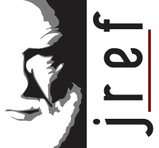Here is a recap of the stories that appeared last week at Science-Based Medicine, a multi-author skeptical blog that separates the science from the woo-woo in medicine.
Clinical trials of homeopathy versus “respect for science” (David Gorski) A University of Toronto study of homeopathy for attention deficit disorder has generated a lot of controversy. Over 200 years of research on homeopathy has demonstrated that it is pseudoscience. It doesn’t work, its plausibility is close to zero, and it is unethical to keep doing clinical trials. Critics who think even the most implausible claims deserve further testing are misguided.
Mind Over Matter: The Brain’s Way of Healing (Harriet Hall) Norman Doidge’s second book on brain plasticity is even more overenthusiastic than the first. He tells stories of remarkable healing that he attributes to re-wiring the brain using a number of questionable therapies that have not been adequately tested and at least one that has been tested and shown not to work. Our new understanding of brain plasticity may offer new ways of healing, but Doidge goes way beyond the evidence.
Another Review Finds Homeopathy Worthless (Steven Novella) Another review of homeopathy by the Australian National Health and Medical Research Council adds to a pile of previous reviews showing that homeopathy does not work for any indication. Given our knowledge of basic science, we can reliably say that homeopathy cannot work. It is long past time to close the door on homeopathy.
Evaluating milk and its substitutes (Scott Gavura) There are several milk alternatives on the market with soy, almond and other non-dairy ingredients. Their nutritional value and calorie content vary. There’s no convincing evidence to suggest regular milk is either harmful or particularly healthy for most adults. Beverages should be chosen on the basis of personal preference, not for health reasons.
ND Confession, Part 1: Clinical training inside and out (Britt Hermes) The first post of an ex-naturopath, describing her clinical training at Bastyr University in great detail and even supplying a copy of her transcript. She shows that naturopathic education is lacking in quantity and quality, teaches no standards of care, and includes pseudoscientific diagnostic methods and treatments of real and fake diseases. Charts purporting to show equivalence with the teaching in medical schools are misleading and are based on false equivalencies.
Clinical trials of homeopathy versus “respect for science” (David Gorski) A University of Toronto study of homeopathy for attention deficit disorder has generated a lot of controversy. Over 200 years of research on homeopathy has demonstrated that it is pseudoscience. It doesn’t work, its plausibility is close to zero, and it is unethical to keep doing clinical trials. Critics who think even the most implausible claims deserve further testing are misguided.
Mind Over Matter: The Brain’s Way of Healing (Harriet Hall) Norman Doidge’s second book on brain plasticity is even more overenthusiastic than the first. He tells stories of remarkable healing that he attributes to re-wiring the brain using a number of questionable therapies that have not been adequately tested and at least one that has been tested and shown not to work. Our new understanding of brain plasticity may offer new ways of healing, but Doidge goes way beyond the evidence.
Another Review Finds Homeopathy Worthless (Steven Novella) Another review of homeopathy by the Australian National Health and Medical Research Council adds to a pile of previous reviews showing that homeopathy does not work for any indication. Given our knowledge of basic science, we can reliably say that homeopathy cannot work. It is long past time to close the door on homeopathy.
Evaluating milk and its substitutes (Scott Gavura) There are several milk alternatives on the market with soy, almond and other non-dairy ingredients. Their nutritional value and calorie content vary. There’s no convincing evidence to suggest regular milk is either harmful or particularly healthy for most adults. Beverages should be chosen on the basis of personal preference, not for health reasons.
ND Confession, Part 1: Clinical training inside and out (Britt Hermes) The first post of an ex-naturopath, describing her clinical training at Bastyr University in great detail and even supplying a copy of her transcript. She shows that naturopathic education is lacking in quantity and quality, teaches no standards of care, and includes pseudoscientific diagnostic methods and treatments of real and fake diseases. Charts purporting to show equivalence with the teaching in medical schools are misleading and are based on false equivalencies.


